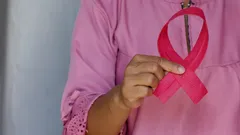
Imagine an environment where every woman gets the treatment she requires at the time she requires it. That's the ideal scenario for breast cancer care in the local community. For many Filipinas this path feels like a slog. Explore this article to find out the ways you or your family members can bridge the gap in breast cancer treatment and turn the hope into actual, daily victories.
Understanding Breast Cancer: A Filipino Perspective
Breast cancer is the most prevalent cancer in women here with about 1 out of 13 Filipinas predicted to be diagnosed with it during her lifetime. Despite advancements in technology for medical treatment, a lot of patients are still diagnosed late which makes recovery more difficult. It's crucial to know that early detection could boost the odds of survival as high as 90 percent. Being aware of signs such as lumps, changes in the nipple, or persistent pain could save lives. With local resources available prompt checkups are more accessible than ever before.
Why Do Gaps in Care Still Exist?
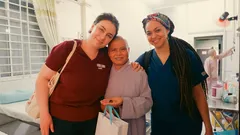
Access to healthcare is a major issue—there are many rural health centers that do not have the necessary equipment for mammograms or even well-trained personnel. Add to this the stigma and fear associated with cancer, and you'll get delayed diagnoses that can result in more difficult recovery. According to the Philippine Cancer Society, only around 5–10 percent of cancers are diagnosed at a stage 1 or 0 in comparison to over 30 percent in metropolitan areas that are more developed. Awareness campaigns are crucial but so are actual easy-to-understand steps women are able to take in their daily lives.
"One of the best things women can do is to know their bodies and speak up at the first sign of changes."
Affordable and Accessible Treatment: Steps Forward
Good news? The major hospitals of Metro Manila and key provincial cities now offer subsidised cancer screening and treatment. PhilHealth provides a substantial amount of the cost of early-stage breast cancer treatment—up to P100,000. Additionally, local Support Groups offer not only emotional support but also practical suggestions on how to manage adverse reactions or seek second opinions. Eliminating the fear of financial ruin can help women to seek treatment earlier and improves the odds of recovery.
Checklist: Making Breast Cancer Screening Part of Your Routine
- Check your after you turn 40 or earlier if there is family history.
- Find free or discounted mammogram days at DOH-accredited clinics in your area.
- Attend community health events, where self-exams for breasts are offered. demonstrations are held.
- Keep an eye on abnormal changes to your breasts—Note any changes.
- Discuss openly to your physician regarding the history of your family's health and the risks.
Survivor Stories: Inspiring Strength in Filipinas
Nothing is more heartbreaking than witnessing someone you know overcome cancer. In the past decade there has been an increase in the number of patients have come forward to encourage women not only to be checked but to fight each stage of their journey. Support groups such as ICanServe Foundation are full of women who are eager to share their experiences, tears and tips, turning scary figures into tales of optimism. Their message is that a supportive community helps make the healing process less lonely and can help women feel more confident each day—at one day at a time.
Breast Cancer Care in the Philippines: What's Next?
Strong community partnerships and government health initiatives and dedicated health professionals have led to significant changes. New breast clinics that are funded through the National Integrated Cancer Control Act are being established in more regions, which will cut down the travel time between exams and treatments. PhilHealth as well as LGUs are continuing to increase coverage, making affordable medical care more accessible. With a greater emphasis on education about health and diagnostic services that are low cost the future of Filipino women's breast health is brighter.
When we look back at the extent to which breast cancer treatment has come, it's evident that there is real progress, but there's plenty of space for action and compassion. When individuals share not only solutions, but also their strength and experiences, it can alter lives. My heart is constantly warm watching how the awareness of breast cancer, support groups and a broader screening access are now truly empowering more women, making hope and strength—an integral part of our daily conversations.
 Meg Magazine
Meg Magazine

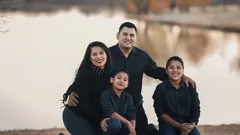


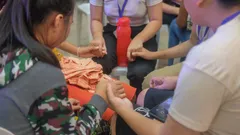




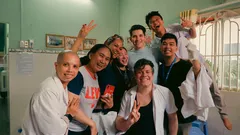




Comments